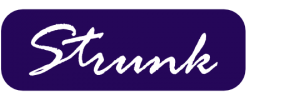Does Your Bank Need More Fee Income?
Community bankers across the country are holding their breath hoping they won’t have to pay increased FDIC insurance premiums to pay for the recent $23B drain on the fund by the two large failed banks. A FDIC special assessment is coming but whether all banks will have to pay their proportionate share is still up in the air. Certainly it is not fair for community banks who are not “too big to fail” to share the responsibility of maintaining the FDIC Insurance fund at regulatory levels. Regardless, expenses at community banks are not going down.
Another concern that should be on community bankers’ minds is the percentage of service charge income they derive from non sufficient fund and overdraft fees. Since 2015, the CFPB has required banks with over $10B in assets to report their income from NSF/OD fees on their quarterly call report. Now, several states are asking smaller community banks for the same data. Banks that obtain over 50% of their fee income from NSF/OD fees are being criticized by the regulators. Some bankers are keenly aware of what is going on…others have not caught on to what they can do to mitigate this from happening. Bottom line is all bankers need to diversify their sources of fee income.
Strunk’s value added checking program will generate significant amounts of fee income while keeping free checking for those customers who want it. Since 2011, over 1,200 banks have offered the benefits added checking account to their offerings. You can expect fee income to go up by at least $40 per checking account per year. The program is easy to implement and easy to manage.
Contact us at 800.728.3116 or email at info@strunkaccess.com to learn more about fee income programs offered by Strunk. You will be glad you did.


